Michael Hutchence was rarely out of the papers in the final years of his life, but there was a secret he had kept hidden from the world - he was suffering from brain damage.
A violent altercation five years before his death left the INXS star with two large areas of permanent damage, as well as robbing him of his sense of taste and smell.
The only other person who knew - his then girlfriend supermodel Helena Christensen - had been sworn to secrecy.
So why hide his injuries, and suffer in silence?
Filmmaker Richard Lowenstein, who worked with the star for many years, thinks he has finally pieced together the elements that led to Hutchence's death aged just 37.
In his documentary about the singer's life, Mystify, he says it was that one event - a punch from a taxi driver outside a pizza shop in Copenhagen in 1995 - that changed everything.
Speaking to Sky News, Lowenstein explains, it was only after the accident that Hutchence displayed "sudden mood swings and temper outbursts", which were completely out of character.
He goes on: "One of the one of the biggest tragedies is that because he was a rock star, people just associate those things with rock star-type behaviour.
"He'd burst into tears and say, 'It's all about taste and smell that I'm so depressed… If I have a baby, I won't be able to smell my own child.'"
The filmmaker says at the time, Michael convinced him his frustrations stemmed from his loss of taste and smell, but after star's death, Lowenstein discovered the truth.
It was while interviewing Hutchence's ex-girlfriend, model Christensen, he discovered the full extent of his injuries.
"When we got to Helena and her story, and finally got to the full unedited autopsy report, suddenly everything became clear, that was light bulb moment.
Hutchence had two large contusions and permanent areas of damage in his frontal lobes.
"I took all that material from the interview and the report to an expert on suicide and neurologists and they said: 'Without doubt that's what happened, he killed himself'.
At the time of Michael's death in 1997, he and his then-partner Paula Yates were fighting a very public custody battle over her three children with Sir Bob Geldof.
Already at a low ebb, and on the eve of a gruelling world tour, Hutchence called his manager and ex-girlfriend from his Sydney hotel room and then took his own life.
Lowenstein says he believes Hutchence's biggest fear - "of not being in love and not having someone to love him" - holds the key to his secrecy over his private suffering.
"He was incredibly insecure, and if it had gotten out - even just between the band members - that he had serious damage to the brain, they would have come in and started writing the songs themselves.
"And that was his worst nightmare."
"I do think he was scared that even if Paula [Yates, his partner at the time of his death] had known or any of his partners had known, they would maybe not love him quite so much or treat him like an invalid.
"He didn't want to be seen as less of a person than he was before the accident."
While his brain injury no doubt fuelled his depression and subsequent struggles, suicide was a theme Hutchence returned to during the course of his life.
While researching for the film, Lowenstein says, "we found six or seven interviews, where he brings up suicide, saying, 'no one minds if you kill yourself' and 'no one minds if you do'.
"Especially aged 27, when so many stars died like Hendrix and Morrison, and he was being obviously compared to some of those.
"And then he gets through 27 and he says, 'I'm a survivor'. But that whole subject keeps coming up.
"The suicide specialist said it's usually a craze of people who do attempt suicide that they always discuss it or bring it up in a flippant ways.
"We even found little diagrams, stick figures of himself with a noose around his neck, in his diaries from the 80s."
So why is Lowenstein making this film now, all this time after Michael's death?
"I've waited 20 years for someone to tell the story properly and it hasn't happened.
"I'd seen many salacious tabloid-style documentaries, and none of us who knew Michael recognised the person being portrayed."
As a personal friend of the star he admits: "I do find watching it a lot harder than making it".
But it was that personal relationship with Hutchence, as well as many of his friends and former partners, that allowed him to ask questions and get answers no other filmmaker could.
"They're not just sitting down with a journalist who's been commissioned to make a film about Michael, they're sitting down with someone they knew 20 years earlier.
"I knew all these people, so there was this element of trust on either side of the microphone."
He says the fact that each interview was recorded with no cameras present and in a darkened room meant that people opened up in a way they hadn't before.
"It was very easy to forget there was anyone else going to be listening, especially in Kylie's case.
"She's done plenty of interviews about Mike, but they've always been with lights, cameras, strange camera men… But with me it was like two friends discussing what happened.
"There were usually tears involved."
Kylie Minogue, who dated Hutchence between 1989 and 1991, spent three hours talking to Lowenstein in London, then three more in Australia.
She also handed over never-before-seen personal filmed footage shot by the couple during their relationship, as well as photos and letters.
Lowenstein - who was close to them both during their relationship - says it was a partnership based on real affection.
"They did some naughty recreational things together but underneath it all was this really warm, secure love and relationship. Until, as she says in the film, it was over."
The couple broke up in 1991 while Kylie was touring in Japan.
Lowenstein goes on: "For someone who had such a naughty boy reputation he was always in a solid relationship - I couldn't find a gap in where he wasn't in a relationship."
"He might have been going out to nightclubs and things like that, but compared to the real bad boys of rock he was a pussycat.
"Michael would be more interested in sitting in his hotel room till four in the morning, talking about art and politics."
Describing him as a "sponge who soaked up all the stuff around him", Lowenstein explains Hutchence's appetite to learn stemmed from his early start in showbiz.
"He'd been ripped out of high school at 15 and press ganged into a band, which he was quite willing to do.
"But a lot of people in bands, they realise they don't have an education because they've been playing since they were 15 or 16. They have to go out and get an education, and he was that kind of guy."
It was that deeper side to Michael that drew him to U2 star Bono, with the pair forming a connection - albeit a competitive one - during the late 80s.
Lowenstein explains: "I was the person who introduced them. They loved each other, but in a slightly envious way.
"Bono would look at Michael and say, 'Boy I wish I could perform like that' - in that really sensual, true rock star way.
"And Michael would look at Bono and say, 'I wish I could write songs like that' - songs that were a bit deeper, go a bit further and have the content that would get me through into the 90s.
"It was an interesting friendship."
"One of the great dilemmas of his life was being torn between a cute, sexually attractive, rock god performer who played to the teeny-boppers and his desire to be a credible artist.
"I know that Michael would have loved to have the reputation of Nick Cave for example."
INXS, who were best known for their hits Suicide Blonde, Mystify and I Need You Tonight, saw the height of their fame in the late 80s and early 90s.
But Hutchence felt restricted by the creative limits of pop and yearned to express his integrity as an artist, even striking out as a solo performer during the mid-90s.
Eventually, after disappointing sales, he returned to record a tenth album with INXS, but their star was waning - a fact cruelly highlighted by Noel Gallagher during the 1996 BRIT Awards.
As Oasis were awarded best video trophy by Hutchence, Gallagher called him a "has-been" - a public humiliation that further took its toll on the singer.
Lowenstein explains: "He tried to flippantly pass it off, but as someone in his early 30s knowing the record sales weren't going as well, that really did affect him.
"And he actually loved Oasis, they represented this new generation that could have been the direction he might have gone into.
"So, to have his idols come out and pull him down for whatever egotistical young rock star reasons was really hard. His managers described him as totally depressed and bawling his eyes out.
"He would never do that to anyone, he was always incredibly encouraging of other people. He would never pull anyone down like that."
It was during these final years that Hutchence became tabloid fodder, largely thanks to his relationship with Paula Yates and the very public ending of her 19-year marriage to Sir Bob Geldof.
Yates and Hutchence had first met back in 1985, but after their infamous "boudoir" interview on Big Breakfast in 1994, (where she interviewed guests on a lavish double bed) the two finally became a couple.
Lowenstein says he thinks Hutchence's attraction to Yates may have stemmed from his own damaged childhood.
"When you look at the Bob and Paula thing in a Freudian context, you've got a father of three daughters and a mother with an instant family, and Michael goes off with the mother and destroys the family.
"He's actually re-enacting his own childhood and trying to make it work. Of course, it doesn't work and of course it's a nightmare. But Michael at that stage wasn't thinking all that clearly."
Hutchence's parents split up when he was a child, and he was taken by his mother to move to LA, while his younger brother was left in Sydney with his father.
He carried the guilt of being the chosen one, and abandoning his brother for the rest of his life.
It's fitting that Hutchence's daughter with Yates, Tiger Lily, has also played her part in the making of the documentary.
Lowenstein explains: "She's an incredibly private person, so I don't feel right saying too much.
"But she allowed me to come and show the film to her on a laptop. She got very moved by, a lot of the stuff she'd never heard of, she'd never spoken to the ex-girlfriends.
"The one thing she did say was, 'It's very good but you need my dad's music, what can I do?'
Lowenstein had struggled to get access to INXS music without giving them rights over the final cut, something the filmmaker was not willing to do.
:: Listen to the Backstage podcast on Apple Podcasts, Google Podcasts, Spotify, Spreaker
"She wrote an email to the record company and band management, and within 24 hours of the email being sent, we had nine songs at a very reasonable rate.
"It's a completely and utterly different film because of her involvement, and a better film.
"She's just a great kid, it was wonderful to meet her and see those little bits of Michael in her."
So, what does Lowenstein think Hutchence would have made of the documentary?
"I believe he would have been proud of the end result.
"I had to make the film with him peering over my shoulder.
"I knew him very well, so we couldn't just make an INXS fan piece, or allow band management to have right of final cut… Michael's ghost would never have let me sleep properly."
And what would Michael be doing now, if he was still around?
"He'd have a younger girlfriend and he'd be absolutely playing with INXS and doing his own solo work. And still be looking damn good for a 60-year-old."
Mystify is in cinemas from Friday 18 October
:: Anyone feeling emotionally distressed or suicidal can call Samaritans for help on 116 123 or email jo@samaritans.org in the UK. In the US, call the Samaritans branch in your area or 1 (800) 273-TALK.
Entertainment - Latest - Google News
October 19, 2019 at 10:58AM
https://ift.tt/2VV1G0g
INXS star Michael Hutchence and the secret he took to his grave - Sky News
Entertainment - Latest - Google News
https://ift.tt/2AM12Zq
Bagikan Berita Ini
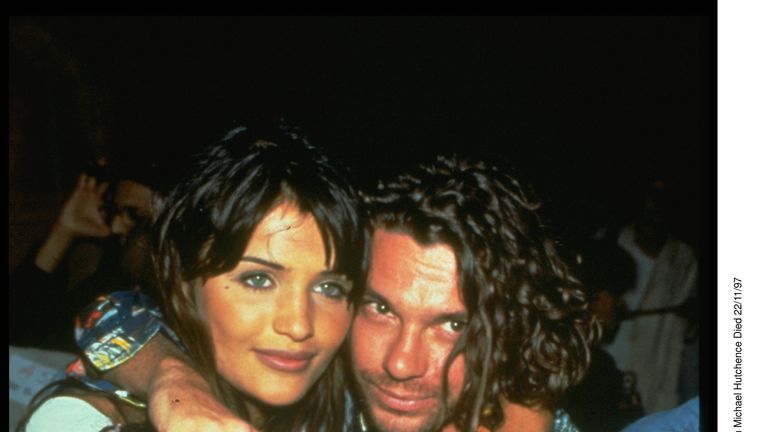

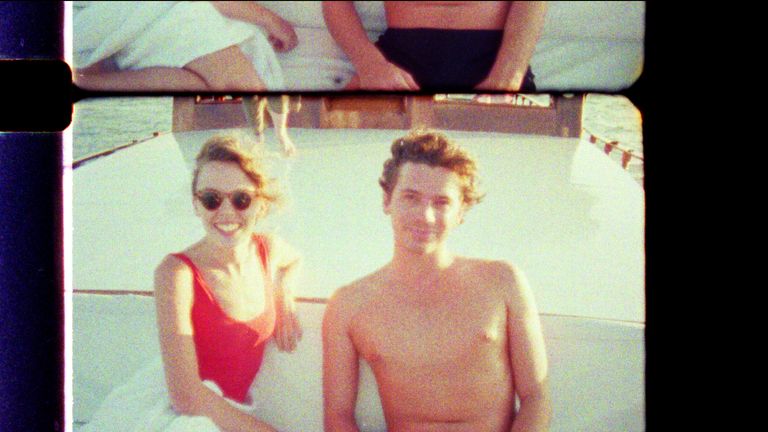

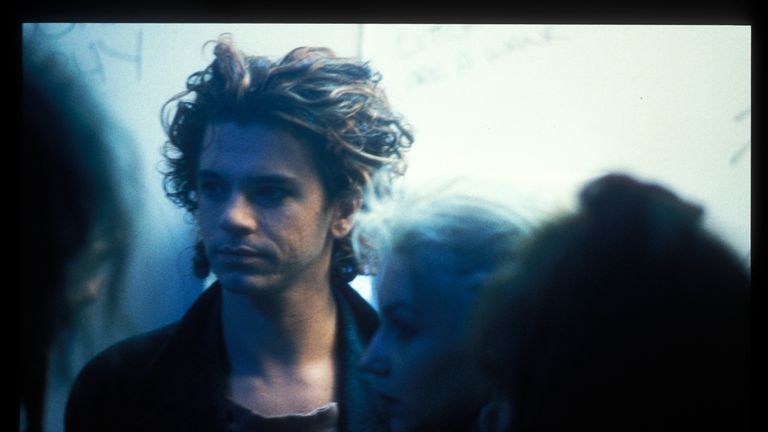
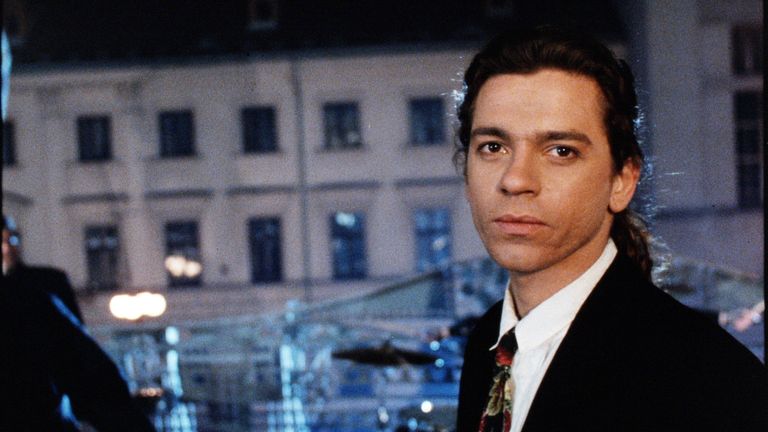
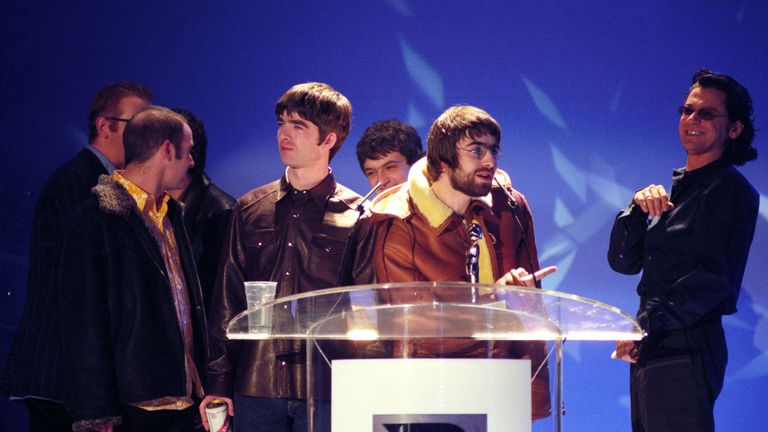
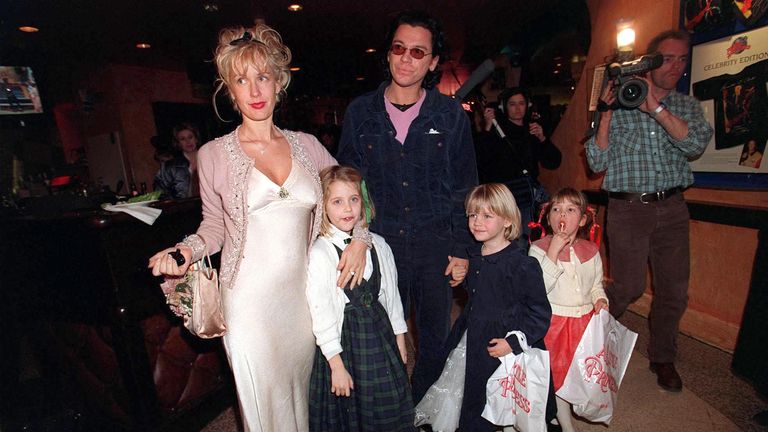














0 Response to "INXS star Michael Hutchence and the secret he took to his grave - Sky News"
Post a Comment